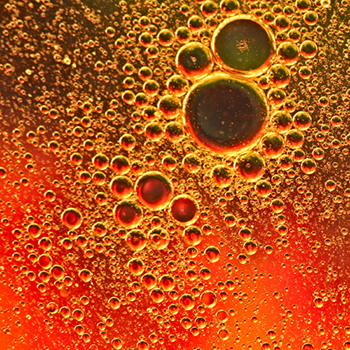The coal industry is the traditional application of calorimeters because coal has a variety of properties, apart from being black. If the coal is used for steam generation then the calorific value is of paramount importance. The calorific value, short CV, is a measure of how much heat can be extracted from it. The CV is measured in MJ/Kg (KJ/g) or CAL/g or BTU/lb, the conversion factors are well known:
1 MJ/Kg = 429.92255 BTU/lb = 238.84586 CAL/g
For reference: 1J = 1Ws (1 Watt for 1 second)
If the power station conversion efficiency from coal to electricity would be 100% then 1 gram of coal with a CV of 26KJ/g would result in 26000 WS = 7.2 Watt Hour.
A 40W bulb can run it for 650 seconds or 10.8 minutes. That is amazing! 1 gram of coal is about the size of a large pea or a small bean. Because the CV of steam coal is so important the power station buys the coal in tons and CV, knowing quite well that black sand doesn't give off much heat. In effect, every time the coal changes hands from the producer to the shipping, stock piling and user, the CV of the coal is measured. Coal deteriorates when stock piled due to oxidation. This is measured as well.
The steam coal producer faces a different problem : he has to ship coal of a specific CV. If it is too high he loses out, if it is too low he is penalized. Coal, when it is found in the earth, comes in layers. Black sand, mixed in with high CV, mixed in with normal coal. During the mining process a coal producer avoids the black sand, but he has to grade the coal in any event. This is done with a washing plant, which explores the gravity of coal. The resultant selected (washed) coal is measured and depending on the contract with the user may be blended with other grades to produce steam coal with the exact specification demanded by the user. The blending process requires measuring the CV again. Blending is very common if the coal is shipped, because shipping is volume orientated.
Coal has other properties which are important because they affect the environment or the process, but the calorific value (CV) is the most important property because it produces heat, and subsequent energy.

Related Applications
Explosives Analysis

Only explosives which can be ignited by heat from the calorimeter's firing circuit can be tested in the oxygen calorimeter.
Read MoreFuel Analysis

As a general rule, volatile fuels are measured very seldom because they are very consistent.
Read MoreOil Analysis

Oils are a non-volatile substance. In general they are not measured frequently because they are very consistent and uniform.
Read More
